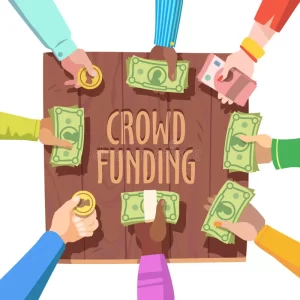 A Clear Path Forward:
A Clear Path Forward:
A Guide to Crowdfunding While Receiving Social Services
If you are applying for, or currently receiving, government assistance, including: SSI, housing assistance, or welfare, any money received from crowdfunding, will be considered an asset and you may lose (or be required to pay back) your government assistance.
Crowdfunding and Social Services Benefits
Crowdfunding has become an increasingly popular way for people to raise money for a variety of causes, including personal expenses, medical bills, and business ventures. However, there is some concern that crowdfunding may affect eligibility for social services benefits such as SSI, SNAP, and welfare.
SSI
SSI is a federal program that provides financial assistance to low-income individuals who are disabled, blind, or aged 65 or older. SSI benefits are based on a person’s income and resources. If a person’s income or resources exceed certain limits, they may not be eligible for SSI benefits.
Crowdfunding can affect SSI eligibility in two ways. First, if a person raises a large amount of money through crowdfunding, it could be considered an asset that makes them ineligible for SSI benefits. Second, if a person uses crowdfunding to raise money for ongoing expenses, such as medical bills or rent, it could be considered income that reduces their SSI benefits.
SNAP
SNAP is a federal program that provides food assistance to low-income households. SNAP benefits are based on a household’s income and resources. If a household’s income or resources exceed certain limits, they may not be eligible for SNAP benefits.
Crowdfunding can affect SNAP eligibility in the same way that it affects SSI eligibility. If a household raises a large amount of money through crowdfunding, it could be considered an asset that makes them ineligible for SNAP benefits. Additionally, if a household uses crowdfunding to raise money for food expenses, it could be considered income that reduces their SNAP benefits.
Welfare
Welfare is a broad term that refers to a variety of programs that provide financial assistance to low-income individuals and families. Welfare programs vary from state to state, but they typically have income and resource limits that must be met in order to be eligible for benefits.
Crowdfunding can affect welfare eligibility in the same way that it affects SSI and SNAP eligibility. If an individual or family raises a large amount of money through crowdfunding, it could be considered an asset that makes them ineligible for welfare benefits. Additionally, if an individual or family uses crowdfunding to raise money for expenses such as rent or utilities, it could be considered income that reduces their welfare benefits.
Overall, it is important to be aware of the potential impact of crowdfunding on social services benefits. If you are considering crowdfunding, you should speak to an attorney or financial advisor to get more information about how it could affect your eligibility for benefits.
Additional items to keep in mind:
- The rules for crowdfunding and social services benefits vary from state to state. It is important to check with your local social services agency to get more information about how crowdfunding may affect your benefits.
- Crowdfunding is not a substitute for social services benefits. If you are struggling to make ends meet, you should still apply for benefits.
If you are a participant in any government program, research the laws in your state before engaging in crowdfunding. Don’t let your blessing turn into a nightmare.
